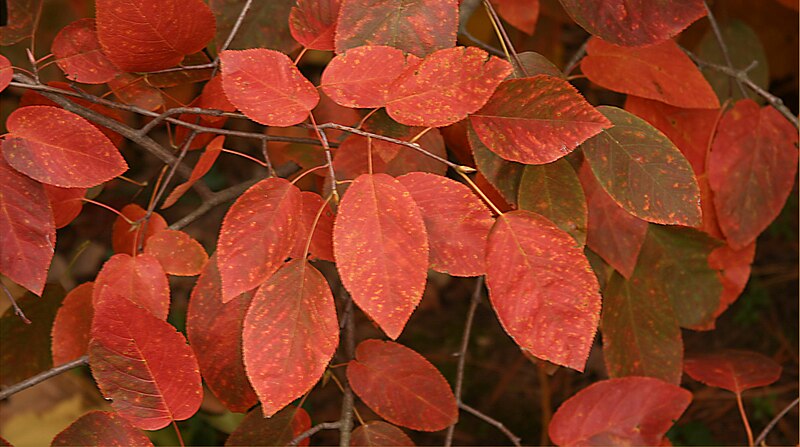 |
| by Amos Oliver Doyle |
Why, then, would I order so many? To start with, because I have to. It's the minimum order I can place with our natural resource district. Also because I want a nice privacy screen between my house and the neighbor who lurks in his garage smoking cigars. It would seem that he's our self-appointed neighborhood watch. While that has its benefits, I don't like that my windows are in his direct line of sight. I work at home. And every time I look out the window, he's there.
But the main reason is because I want to create a place in our yard where my kids can play, where they can explore the natural world and all it entails. Where they can pretend they're in a forest or a fort or a cave. Where they can experience nature first-hand and reap the benefits.
I'm working to create a place that will keep them, my husband, me--even that neighbor--healthy.
Because when trees die, so do people.
This article in The Atlantic describes the most recent piece of research linking trees to human health. The researchers discovered that as ash trees in the Midwest began to die by the million (thanks to an introduced pest, the emerald ash borer), more people in the areas with dying trees died of cardiovascular and lower-respiratory-tract illnesses. Now I'm not suggesting that if a tree in your neighborhood dies, so will you or one of your neighbors. But the relationship is there.
We need nature, and we are just beginning to understand the extent of our dependence. Sadly, we are dangerously close to the tipping point--the point at which we will have pushed nature beyond its ability to spring back from the punches we keep delivering.
But it's not too late. We can take small steps to help heal the natural world. Small steps to heal ourselves, as well.
My husband and I are replacing large sections of our yard with regionally-native plants. No sprays, no fertilizers, but lots of habitat for wildlife (including our boys). If the rest of the yard turns out as well as the small strip of native plants we put in last year, it will thrive even in drought. To watch something thrive when everything around it struggles? That's good for the soul.
As for the eighty-some trees and shrubs we won't use? We'll share them with others. We will happily give them away to friends and neighbors who want to add a little nature to their yard. I can only hope to find each seedling a home.
Out of curiosity, do studies like the one above make you stop to think about your relationship to nature? Why or why not?

